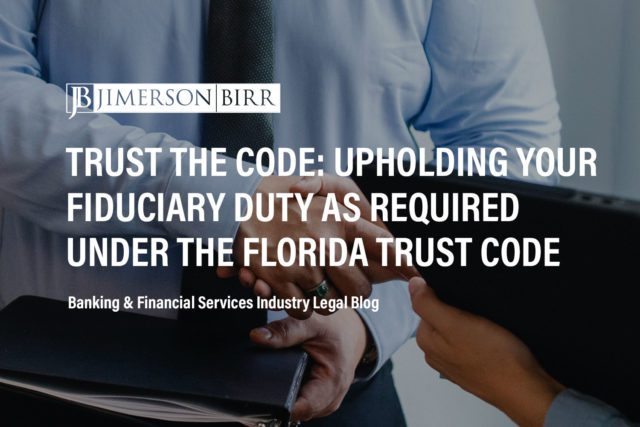What are estate disputes over the treatment of differing creditor claims, transfer avoidance, breach of fiduciary duty, and alter ego liability?
Litigating these disputes in Florida involves addressing various legal issues that arise during the bankruptcy process. Creditors often have differing claims, which may result in conflicts. For example, secured and unsecured creditors may have conflicting interests in the debtor’s assets.
Transfer avoidance actions, such as fraudulent transfers, enable trustees to recover improperly transferred assets. Breach of fiduciary duty claims are against individuals or entities that fail to meet their legal obligations to act in the estate’s best interest.
Lastly, alter ego liability arises when a court pierces the corporate veil, holding owners personally liable for the entity’s actions.
For instance, suppose a trustee discovers that a debtor transferred valuable assets to a related party shortly before filing bankruptcy. The trustee then initiates a fraudulent transfer action to recover these assets while also alleging that the debtor’s owners breached their fiduciary duty by improperly transferring assets and that the debtor is merely an alter ego for the owners’ personal interests.
Need a bankruptcy law advocate? Schedule your consultation today with a top bankruptcy and restructuring attorney.
Which Florida laws and regulations apply to these estate disputes?
The legal framework for litigating disputes in Florida’s bankruptcy context involves a combination of federal and state laws. The Bankruptcy Code, precisely 11 U.S.C. §§ 101-1532, governs the treatment of creditor claims, transfer avoidance, and the duties of trustees. Meanwhile, Florida state laws, such as the Florida Uniform Fraudulent Transfer Act (FUFTA), address fraudulent transfers and asset protection.
Florida courts rely on common law principles and state statutes for breach of fiduciary duty claims, such as the Florida Fiduciary Duty Statute (FFDS) in Chapter 738 of the Florida Statutes.
On the other hand, Alter ego liability is primarily a matter of state common law, with Florida courts applying various factors to determine whether to pierce the corporate veil and hold owners personally liable for a debtor’s obligations.
How do estate disputes over the treatment of differing creditor claims, transfer avoidance, breach of fiduciary duty, and alter ego liability connect to the bankruptcy process?
In bankruptcy, the trustee plays a critical role in administering the debtor’s estate, including resolving disputes involving creditor claims, transfer avoidance, breach of fiduciary duty, and alter ego liability. Trustees must handle differing creditor claims, balancing the interests of secured and unsecured creditors while maximizing the estate’s value. Transfer avoidance actions, in particular, allow trustees to recover improperly transferred assets before bankruptcy, thereby increasing the estate’s assets for distribution to creditors.
Moreover, trustees must address breaches of fiduciary duty, which occur when individuals or entities fail to act in the estate’s best interest. By pursuing these claims, trustees can hold wrongdoers accountable and potentially recover damages for the benefit of the estate. Lastly, alter ego liability issues arise when the court allows a party to pierce the corporate veil, making owners personally liable for the entity’s debts. In these situations, trustees work to ensure accurate accounting of the debtor’s assets and addressment of concealment or misuse of assets issues.
When a set of facts is appropriate for bankruptcy services, there are many paths a claimant may take. We are value-based attorneys at Jimerson Birr, which means we look at each action with our clients from the point of view of costs and benefits while reducing liability. Then, based on our client’s objectives, we chart a path to seek appropriate remedies.
To determine whether your unique situation may necessitate litigation or another form of specialized bankruptcy advocacy, please contact our office to set up your initial consultation.
What are the prerequisites for trustees to litigate these disputes on behalf of the estate?
Consider the following forms of exposure:
- Standing: Trustees must have standing to bring actions on behalf of the estate. Under 11 U.S.C. § 323, trustees can sue and be sued. This capacity allows them to litigate disputes related to differing creditor claims, transfer avoidance, breach of fiduciary duty, and alter ego liability.
- Authority: Trustees must act within the scope of their authority. According to 11 U.S.C. § 704 and Florida Statute § 727.110, trustees have specific duties and powers to administer the estate and maximize its value, including the authority to litigate disputes.
- Notice and opportunity for hearing: Creditors and interested parties must receive notice and an opportunity for a hearing before the trustee may take specific actions, including litigating disputes.
- Court approval: Trustees may sometimes require court approval before initiating litigation, ensuring that the litigation is in the estate’s and its creditors’ best interest.
Please contact our office to set up your initial consultation to see what forms of legal protection and advocacy may be available for your unique situation.
Frequently Asked Questions
- Can a trustee pursue preferential transfers?
Yes, a trustee can avoid preferential transfers under 11 U.S.C. § 547. A preferential transfer is a payment or transfer made by the debtor to a creditor within a specific period before filing bankruptcy, which unfairly benefits the creditor. If successful, the trustee can recover the transferred property or its value for the benefit of the estate.
- What is the statute of limitations for a trustee to initiate a fraudulent transfer action?
The statute of limitations for federal fraudulent transfer claims is two years from the petition date or one year from the trustee’s appointment, as per 11 U.S.C. § 546(a). However, the statute of limitations for state fraudulent transfer claims under the Florida Uniform Fraudulent Transfer Act is four years, according to Florida Statute § 726.110.
- Can a trustee recover attorney’s fees in a successful avoidance action?
Yes, a trustee can recover attorney’s fees in successful avoidance actions if provided by the applicable statute or contract. For example, under Florida Statute § 726.108(1)(a), a trustee may recover reasonable attorney’s fees.
Have more questions about how bankruptcy services could positively impact your business operations and relationships?
Crucially, this overview of estate disputes over the treatment of differing creditor claims, transfer avoidance, breach of fiduciary duty, and alter ego liability does not begin to cover all the laws implicated by this issue or the factors that may compel the application of such laws. Every case is unique, and the laws can produce different outcomes depending on the individual circumstances.
Jimerson Birr attorneys guide our clients to help make informed decisions while ensuring their rights are respected and protected. Our lawyers are highly trained and experienced in the nuances of the law, so they can accurately interpret statutes and case law and holistically prepare individuals or companies for their legal endeavors. Through this intense personal investment and advocacy, our lawyers will help resolve the issue’s complicated legal problems efficiently and effectively.
Having a Jimerson Birr attorney on your side means securing a team of seasoned, multi-dimensional, cross-functional legal professionals. Whether it is a transaction, an operational issue, a regulatory challenge, or a contested legal predicament that may require court intervention, we remain tireless advocates at every step. Being a value-added law firm means putting the client at the forefront of everything we do. We use our experience to help our clients navigate even the most complex problems and come out the other side triumphant.
If you want to understand your case, the merits of your claim or defense, potential monetary awards, or the amount of exposure you face, you should speak with a qualified Jimerson Birr lawyer. Our experienced team of attorneys is here to help. Call Jimerson Birr at (904) 389-0050 or use the contact form to schedule a consultation.


We live by our 7 Superior Service Commitments
- Conferring Client-Defined Value
- Efficient and Cost-Effective
- Accessibility
- Delivering an Experience While Delivering Results
- Meaningful and Enduring Partnership
- Exceptional Communication Based Upon Listening
- Accountability to Goals










